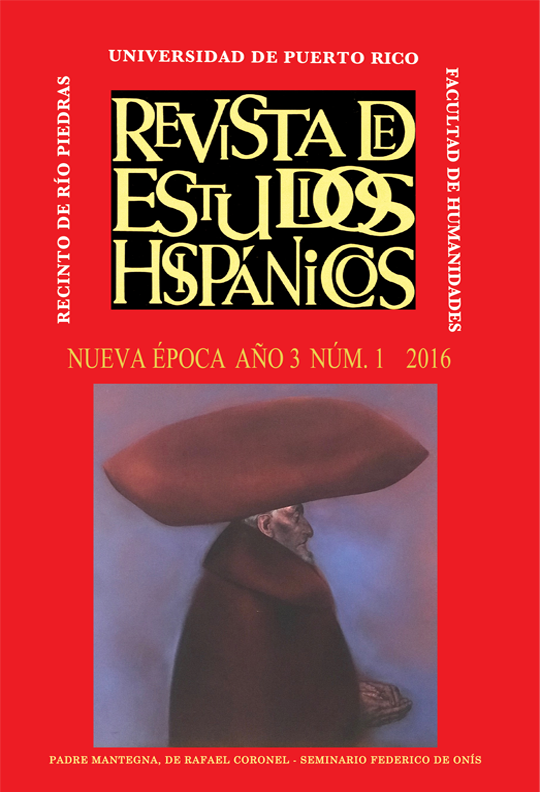Abstract
This essay offers a reevaluation of narrativity as a generic criterion required to define the dezir poetic genre of the 15th Century. It also presents a redefinition of the subgenre of the dezir narrativo based upon an analysis of the narrative elements that are inserted in its poetic. Our analysis will allow distinguishing between three types of poems: the texts that are narrative in the strict meaning of the term, some texts with narrative frame, and, finally those texts that have narrative segments. Moreover, this study aims to challenge the existing typologies of the dezir in the light of the theory of literary genres, and establish a new classification of the cancionero poetry genres. On the other hand, the dezires narrativos outstand for their inclusion of recent and current History, and for a peculiar inscription of the self in a very specific time-space frame. That Historic rule also applies to the texts that bear a strong allegorical or fictional content. In those fantastic poems, the poetic voice strengthens itself by and guarantees the truth of the content by narrating a personal experience. Finally, even if the criteria of narrativity in the dezir may be questionable, the fact that a poetic protagonist speaks out loud because he has "something to say" or "a story to tell" is a literary phenomenon that has not been justly appreciated by the Hispanic field of study.This work is licensed under a Creative Commons Attribution-NonCommercial 4.0 International License.
Downloads
Download data is not yet available.

